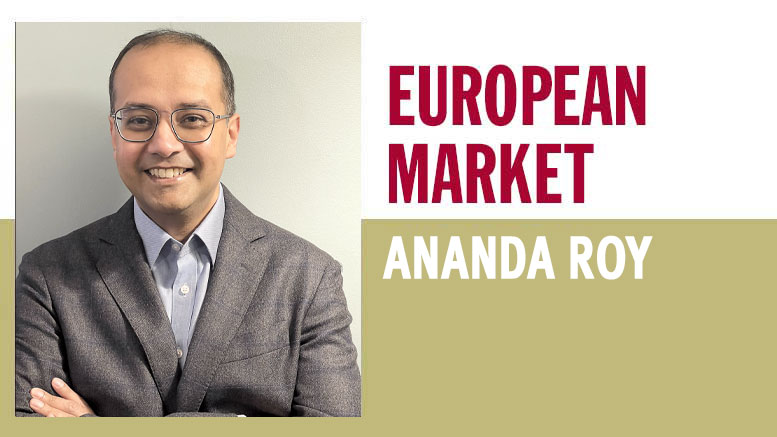A Race for Resilience: Unlocking Growth in a Post-Pandemic FMCG Landscape
February 12, 2024 | 4 min to read
In the wake of the pandemic, the FMCG sector struggles with demand recovery and shifting consumer behaviors reflecting price sensitivity. The rise of private labels, now commanding 39% of grocery sales, indicates changing preferences amid ongoing inflation. Consumers view many everyday categories as discretionary, leading to reduced purchases. While frozen foods gain traction, innovation stagnates, with a 22% decline in new product launches. Sustainable practices are necessary as brands adjust to consumer demand and financial constraints.

Originally printed in the January 2024 issue of Produce Business.
Despite two years after the pandemic, the Fast-Moving Consumer Goods (FMCG) sector is struggling to return to normalcy, with demand yet to fully rebound. Ordinary categories are increasingly transforming into discretionary ones, and private label persists in grabbing market share from established brands.
Consumers, grappling with the impact of inflation, are adopting deal-seeking behavior and turning to discount retailers. These findings from Circana’s latest FMCG Demand Signals report, FMCG’s Race for Resilience: Unlocking Growth, present a mixed bag of news for the fresh produce industry.
While inflation has eased recently, there remains a lack of recovery in FMCG demand across Europe. This highlights the persistent financial strain on consumers. The heightened price sensitivity among consumers prompts a reassessment of loyalty to brands, products and entire product categories.
Despite a slight improvement from a -1.7% decline in 2022, FMCG demand is not expected to fully recover until at least the second half of 2024. However, there is a glimmer of hope. The key lies in exploring opportunities in innovation, sustainability and pricing, providing a shield against potential future shocks.
TUG OF WAR: PRIVATE LABELS ON THE RISE
Private labels continue their ascent, constituting 39% of grocery sales across Europe’s six major markets (EU6). Valued at 246 billion euros ($269.3 billion), private labels have increased their value share by 2.2 percentage points over the past year. The surge in inflation has propelled private labels, which now offer even more premium options. The price gap between private labels and national brands has shrunk, averaging 15-20% in food categories.
In countries like Spain and Germany, private labels dominate beyond the 39% average. Projections indicate that if current trends persist, private labels could command 55-65% of grocery sales across the EU6 within the next five years.
THE GROWING DISCRETION IN EVERYDAY CATEGORIES
Categories once considered “everyday,” including out-of-home consumption, are transitioning to discretionary in the eyes of consumers. This shift doesn’t represent a complete cessation of purchases, but reflects a trend of reduced buying, prolonged product use, or deferred purchases.
While fresh and chilled food contributes significantly to the Fast-Moving Consumer Goods market, its underlying demand has sharply declined.
This discretionary behavior also extends beyond non-food categories. While fresh and chilled food contributes significantly to the FMCG market, its underlying demand has sharply declined, particularly for items like chilled desserts and ready-to-eat meals. Conversely, frozen food has become an “everyday” choice due to the cost-of-living crisis.
Five of the top 20 best-selling food categories are now frozen, demonstrating successful branding efforts emphasizing nutritional value, sustainability, waste reduction and longer shelf life.
HEIGHTENED PRICE SENSITIVITY
Shoppers remain acutely price-sensitive, despite a marginal boost in disposable income from wage growth aligning with declining inflation across Europe. Consumer spending shows a modest recovery, but uncertainty keeps price sensitivity high.
Over the past year, an 11.6% average price increase led to a -1.3% decline in units, with the last six months witnessing an additional increase to 12.9%, particularly impacting everyday food items.
DESERTED BY INNOVATION
Innovation in the FMCG sector faced a desertion, with a 22% drop in new product launches in the EU6 over the past year.
Less than 1% of new product development represents breakthrough or new-to-category innovation. The majority involved revamped, reformulated or repackaged existing products. A few “superstar” innovations account for a significant portion of value and unit growth, with the U.K. leading with 33% of all superstar launches.
BRANDS FACE HARD TRUTHS ON SUSTAINABILITY
Sustainability-marketed products encountered a downturn in demand since mid-2022.
While consumers desire eco-friendly options, budget constraints led to difficult spending choices. In the short term, retailer-driven demand for sustainability is expected, driven by regulations like the European Commission’s Ecodesign for Sustainable Products Regulation.
Packaging sustainability has become mainstream, influencing consumer decisions in Spain, France and Germany, with nearly half of European consumers purchasing fewer plastic-packaged products in the past year.
For brands vying for prominence, a genuine commitment to sustainability is essential.
In an era where consumers are reevaluating their loyalty to brands and categories, businesses and retailers are being forced to seriously overhaul their businesses and strategies.

Ananda Roy is the senior vice president of global thought leadership and strategic insights at Circana. Circana’s FMCG Demand Signals report tracks how consumer demand flows into value for FMCG brands and retailers across Europe’s six largest markets (France, Germany, Italy, Netherlands, Spain and the U.K.). This year’s report is based on retailer sales data for more than 10 million SKUs over 230 food and non-food categories for the full year ending June 2023 compared to the previous year ending June 2022.
5 of 10 article in Produce Business February 2024

